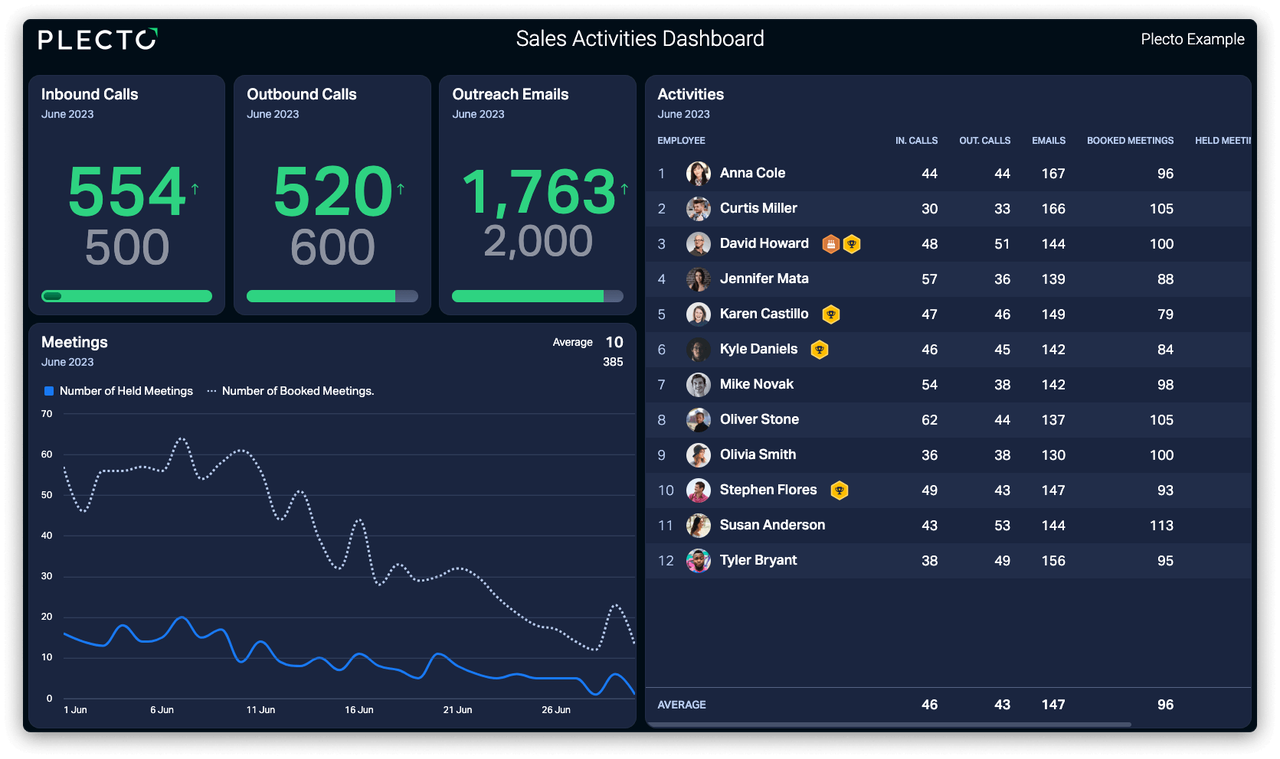Prospecting is hard work, so of course you want the best return on your effort. But what’s the best way to go about selling?
Many sales experts agree that the future of sales is in value-based selling, a consultative process that tailors information and solutions to each prospect’s individual needs. Just 13% of customers believe that salespeople can understand their needs, so it’s hardly surprising that sales reps who focus on how their solution can ease the prospect’s pain points are 96% more successful than those who focus on why their product is the best on the market.
With this in mind, open-ended sales questions are one of the most effective sales tools you can use. Read on to discover ten open-ended questions for sales that can help you qualify leads, build rapport, and excel in value-based selling.
Why is it important to ask the right open-ended sales questions?
Lead qualification is one of the first steps in the sales process – but how can you qualify leads if you don’t ask the right questions? Not having the right information can have a knock-on effect starting with you being “just another annoying salesperson” and ending with a bad-fit customer or a lost sale that you could’ve made if only you’d gathered the pertinent information.
“Yes” or “no” questions tell you very little about a prospect’s situation – but mastering the art of asking the right open-ended sales questions will keep your prospects talking, allowing you to gather crucial information straight from the source.
Before we dive into how to apply this technique, you might want to check out nine of the best cold-calling tips we know of, the five best sales tactics to use in 2023, and how to use AI to help you sell more with less effort.
4 Excellent Reasons to Ask Open-Ended Sales Questions
Open-ended sales questions give prospects space to talk. Conventional wisdom says that the most successful salespeople do 20% of the talking, letting their prospects do the other 80%. This logic goes beyond the rationale that people like to talk about themselves, which is true. However, the real value of asking open-ended questions for sales lies in their ability to enable salespeople to gather insights into the prospect’s pain points, budget, purchasing authority, potential deal breakers, and other important factors while building trust and establishing credibility.
Here are four excellent reasons to ask open-ended sales questions:
- To understand and dig deeper into the prospect’s situation and needs.
- To establish your credibility as an expert worthy of the prospect’s trust.
- To establish the business impact of the issue the prospect is trying to address.
- To establish a clear path to purchase.
Each of your questions should attempt to address one of these objectives.
How to Ask Open-Ended Questions for Sales
The main goal of asking open-ended questions for sales should always be to get a better understanding of the prospect’s needs and how to successfully sell to them. So, approach each conversation with genuine curiosity and a willingness to listen.
Instead of a salesperson trying to make a sale, think of yourself as a consultant who’s trying to solve a problem for their customer. Start by asking broad questions and then tailor your follow-up questions based on the prospect’s responses. This will help you drill down to uncover useful details while keeping the conversation flowing and out of “interrogation mode.”
According to recent research from HubSpot, buyers say that these four qualities are the hallmark of a great salesperson:
- Listens to their needs (69%)
- Isn’t pushy (61%)
- Provides relevant information (61%)
- Provides timely responses (51%)
Asking open-ended sales questions that invite your prospects to do most of the talking demonstrates the first two attributes. Combining that tactic with quick response times and a consultative approach is almost sure to guarantee success! A content library can help you to provide relevant information quickly without having to reinvent the wheel. If your organization doesn’t already have one, you might want to check out this article, which explains how to start a sales enablement program.

10 Effective Open-Ended Sales Questions
This is a good “starter set” of open-ended sales questions for sales reps to ask when they want to build rapport and really understand each prospect’s unique situation and needs. They’re intended to be asked over the course of several calls and meetings as part of a value-based sales approach.
Before you jump into asking your questions, remember that if you work in outbound sales, you’re the one calling the prospect. So make sure to acknowledge right off the bat that you’re interrupting their day, and ask if they’re available to talk. Remember to make the most of your introduction – how you position yourself and your product is a key factor in how likely the prospect is to engage. This is a prime opportunity to pique their curiosity and get them talking.
Without further ado, here are ten open-ended sales questions that should help you gather the insights you need to sell more effectively!
Build your first dashboard.
Start your 14-day free trial today
1. I know “XYZ” about your company, but could you tell me a bit about your business?
This is a broad question, which is a perfect springboard from which to gather information. Listen carefully, collecting insights to help inform your follow-up questions. As you ask your questions, try to meet the prospect at their level. If they’re an expert in their industry, try to match their level of expertise. Conversely, coming off as too much of an expert could be intimidating and have the opposite of your intended effect. Always lead with a bit of information that demonstrates that you’ve done some homework on the company and have reason to believe that your solution could be beneficial.
2. What are your goals for “X” timeframe?
This is a broad yet straightforward question that can look three, six, or even twelve months into the future. Steer the conversation toward possible hurdles to glean insight into how you might be able to help clear some of those hurdles. This line of open-ended sales questions produces a logical conversation flow and positions you as a partner and advisor who can help the prospect reach their goals.
3. What are your team’s main KPIs?
Building your pitch around the team’s KPIs and how your product can help them meet those metrics is an excellent way to build a business case for buying your product.
4. What are your team’s biggest pain points?
As a value-based salesperson, you’re in the business of finding solutions. This is the million-dollar question, and it’s designed to get to the nitty-gritty of how your solution can (or can’t) benefit the prospect. It’s a question that will yield information to help you close the deal or disqualify the lead. This is a great opportunity to ask follow-up questions to get a deeper understanding of the prospect’s situation, which will help you create a demo or pitch that shows you really understand their needs and have the best solution.

5. Has budget been a factor in why you haven’t addressed those pain points?
This question is designed to give a peek into the prospect’s budget, which is an important factor in whether or not they’re a qualified lead. Note that you’re not asking what their budget looks like, you’re asking how budgetary concerns may or may not have contributed to their current situation.
6. What’s your process for evaluating new products or services?
This question should give insight into important details about things like stakeholders and purchasing processes, which could influence the sales cycle. It’s also an opportunity to tactfully find out whether the person you’re speaking with is a decision-maker with purchasing power.
7. What solution are you using now?
Here, you’re trying to find out what’s been tried and what the prospect likes and doesn’t like about their current solution. A follow-up question about why they chose that solution can give you an idea of their thought processes and possible objections, and help you sell against the weaknesses of their existing solution.
8. What other solutions are you considering?
It’s usually a safe assumption that a prospect is considering multiple solutions. Knowing your competition can help you play to their weaknesses in your demo or pitch. In your follow-up questions, don’t be afraid to ask about what the prospect likes and doesn’t like about the other solutions. It’s a bold question, but you won’t know unless you ask.
9. Walk me through your current process for …
This question serves two purposes. First, it’s a way to build credibility by proving that you understand the prospect’s industry. Secondly, it elicits a long and specific answer that can provide lots of useful insights into how your product could improve the prospect’s current situation. To get the most out of this question, ask about a very specific process that only someone with industry knowledge would know to ask.
10. Could you give me an example of that?
Alternatively, you could say, “Can you tell me more about …?” Both are fantastic follow-up questions because they require a detailed answer that’s bound to be full of specifics that you can use to tailor your pitch to where the prospect needs the most help. Not only will this help you pitch more effectively, but it’ll help to establish your credibility as someone who listens and wants to help.
Use KPI Dashboards to Showcase Your Success
Once you’ve perfected your technique for asking open-ended sales questions, you can measure and highlight your success using these 21 sales KPIs examples and Plecto’s real-time sales performance dashboards.
Plecto integrates with most major sales-tracking software to offer plenty of options for customizing your KPIs, data visualization, and performance agreements.
The platform also includes popular features like leaderboards, contests, and instant notifications to add an element of fun to everyday tasks.
Sign up for a free 14-day trial and see how Plecto can help your organization sell more effectively!




